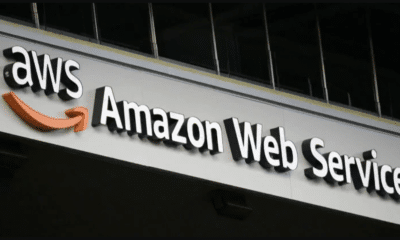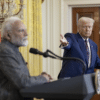Business
India’s MSMEs should help each other grow: Sumathi Chakravarthy
India’s MSMEs should help each other grow to further the potential for growth of entrepreneurship in India, said Sumathi Chakravarthy, CEO and Managing Director, Infinite Sum Modelling, in a Twitter Space organized by the Plunge Daily on Thursday. The session, moderated by Ashutosh Bhattacharya, was attended by leading thinkers and business experts including Lloyd Mathias, Angel Investor & Business Strategist and Bhupen Wakankar, Director, Global Trade, Amazon.
On the potential for growth of entrepreneurship in India, Sumathi Chakravarthy said MSMEs should help each other grow. “There is a potential for MSMEs to feed into each other. There are many startups in the country which can help MSMEs grow. It can help in logistics and operations, and assist companies and governments to push further. Without promoting technology, rising from mom-and-pop stores would be difficult. Reaching everywhere is important. It will also contribute towards making a ‘AtmaNirbhar Bharat’,” she said.
Mr Bhupen Wakankar, whose team at Amazon focuses on creating technology that makes it easy for Indian sellers and brands to export their products, said e-commerce platforms are plugging the logistical problems in the system. “The first problem for MSMEs is access. Large corporations have all the facilities and systems in place. It’s where marketplaces like Amazon can help. We allow a single-button listing. If you sell exotic coffee and want to reach out to a global buyer, we will allow you to reach them.. The second problem is to know what the buyer is interested in. For that, we have deeper market intelligence. The third and fourth problems are cross-border logistics and payment flow. These things that could be considered fiction or headaches, have been avoided for MSMEs through e-commerce platforms,” he said.
Wakankar said India is right now in the third phase of digitization. “This phase deals with integration, where there are focus on several government departments to work together. Simplification will also help MSMEs a lot. Businesses that are just getting off from the ground should have a looser sense of compliance. Then there is ground work and goal setting on a district level. Under it, each district should start reporting their e-commerce sales. This district level energy is very important from a resource perspective. We need to push the awareness of global trade at a district level,” he said.
Lloyd Mathias, an acknowledged thought leader, who has written on business and policy issues for several major publications in India, was of the view that the Indian government should work to encourage exports at various levels. “India’s exports are growing at an unprecedented scale. However, the real unleashing of the potential will come when we empower medium and small-scale entrepreneurs and allow them to be part of the export economy. A major problem for them are third-party supply chains and intermediaries, where most of their margins are gone. The policymakers should reach out the button of the pyramid and end the roadblocks that come in their way,” he said.
Sumathi Chakravarthy was also of the view that policy makers and e-commerce platforms need to work together to uplift India’s small entrepreneurs. “The policymakers should enable MSMEs access to the PLA schemes and strengthen transport modes like road, rail etc. This will also help e-commerce platforms. To make it easier to reach out to other markets, tariffs are an important point. India is looking at Free trade Agreements with countries like the UAE. Lastly, a very important thing is sustainability. The digital platforms can help promote sustainable nature-friendly goods on their marketplaces. This will also help the environment,” she said.
Badri Narayanan Gopalakrishnan, Former Head, Trade, Commerce & Strategic Economic Dialogue, NITI Aayog, who had joined the Twitter Space, was of the view that the government should help MSMEs in capacity building. “It’s important to create awareness among MSMEs of various standards and to penetrate the market. Then they need to be made to comply with these standards. Many MSMEs are already fulfilling the standards without knowing that they are doing it. The government should support them and help them in capacity building,” he said.
Lloyd Mathias was of the view that this will happen through reducing compliance burden on small enterprises. “It is only through reduced compliance burden that real growth can happen. We can help the MSMEs reach out to his audience and help them initially. They can benefit thorugh help of social media, maybe website developers, or even shopping cart enhancement specialists. We also need skill-building as these small entrepreneurs can vendor with the expertise to reach out to a global market,” he said.








































